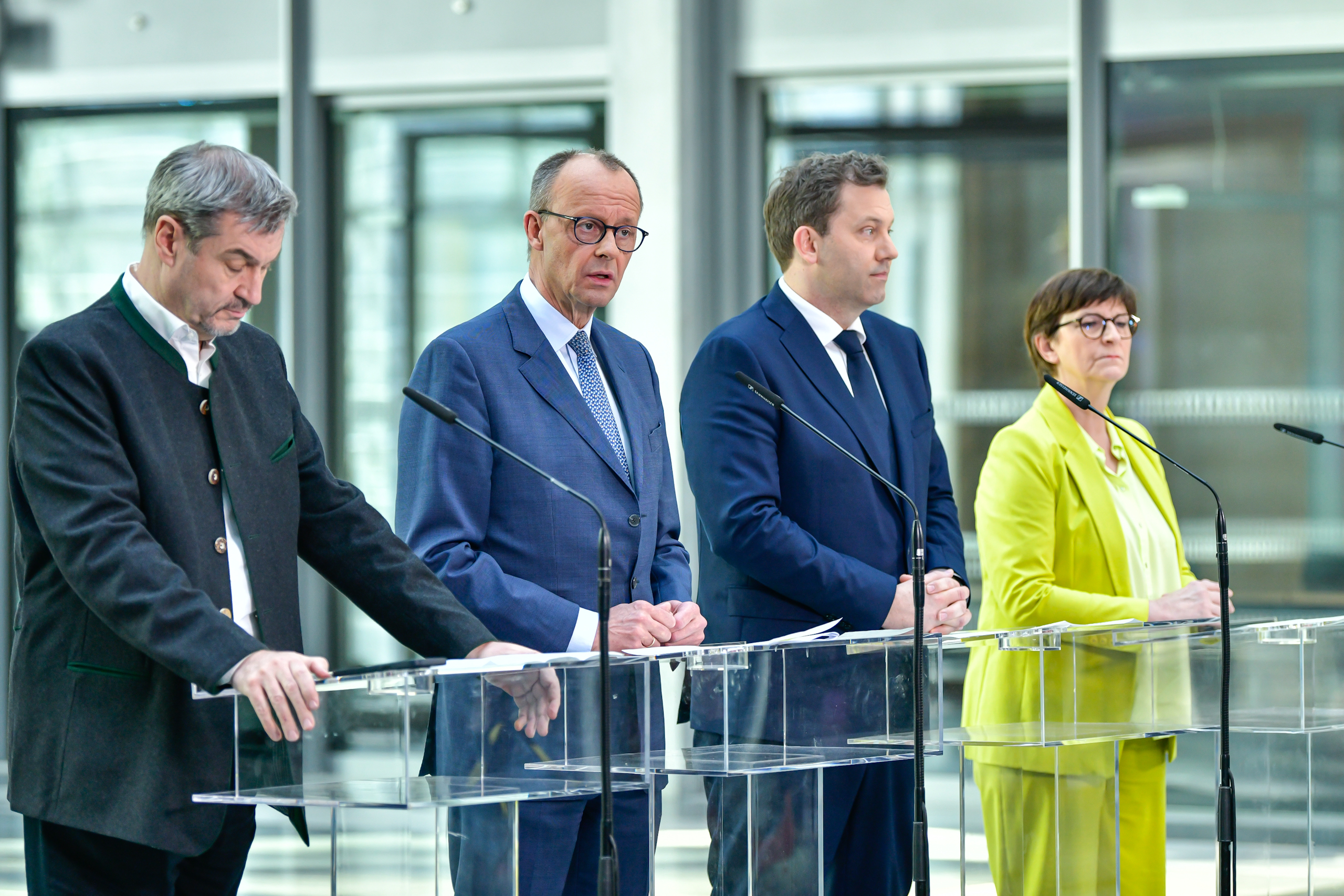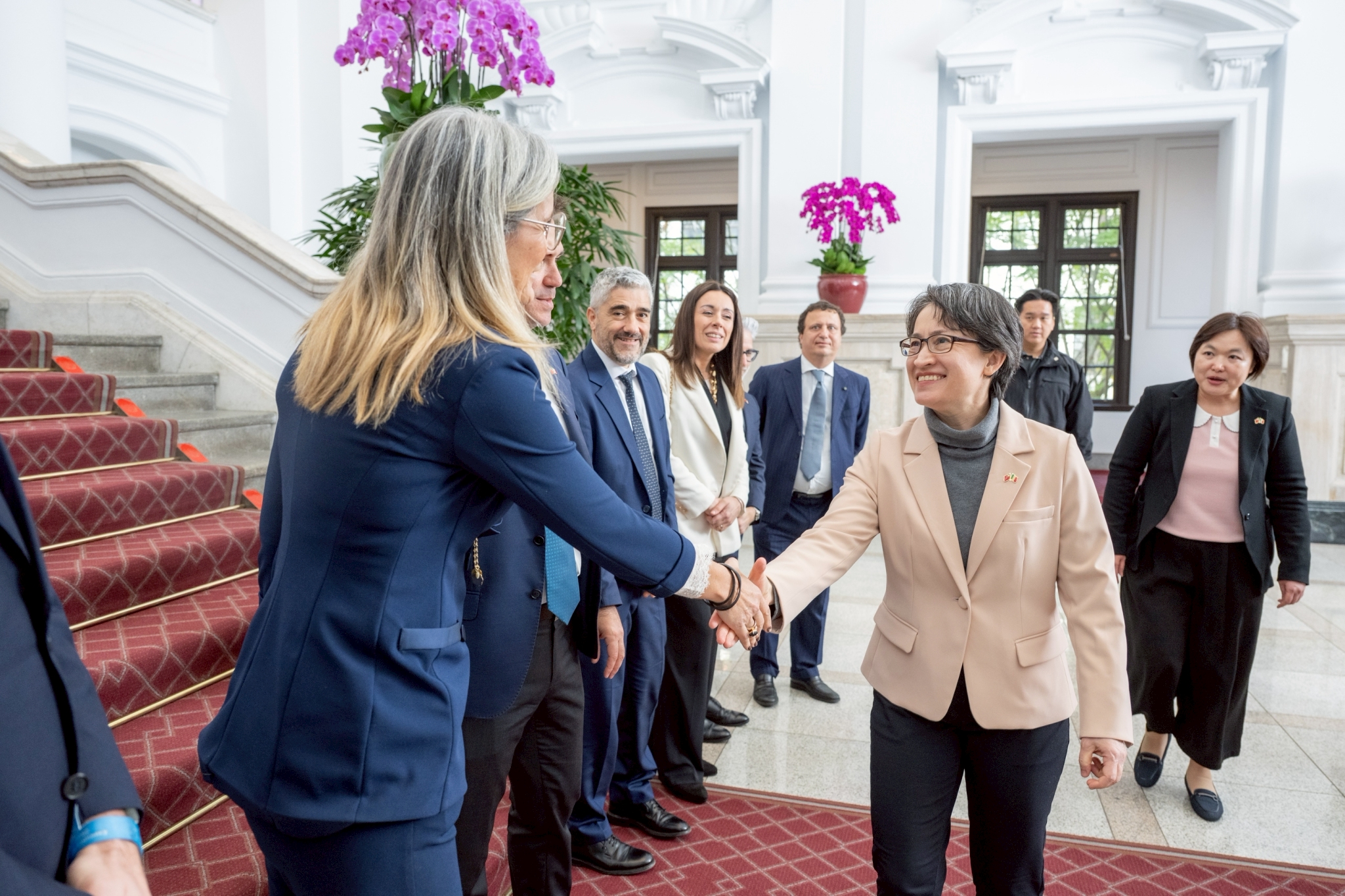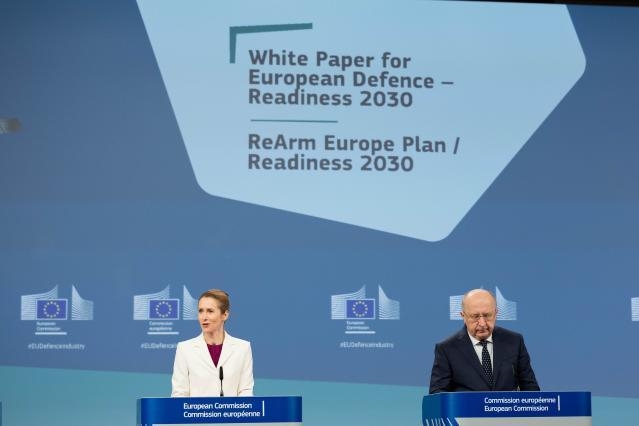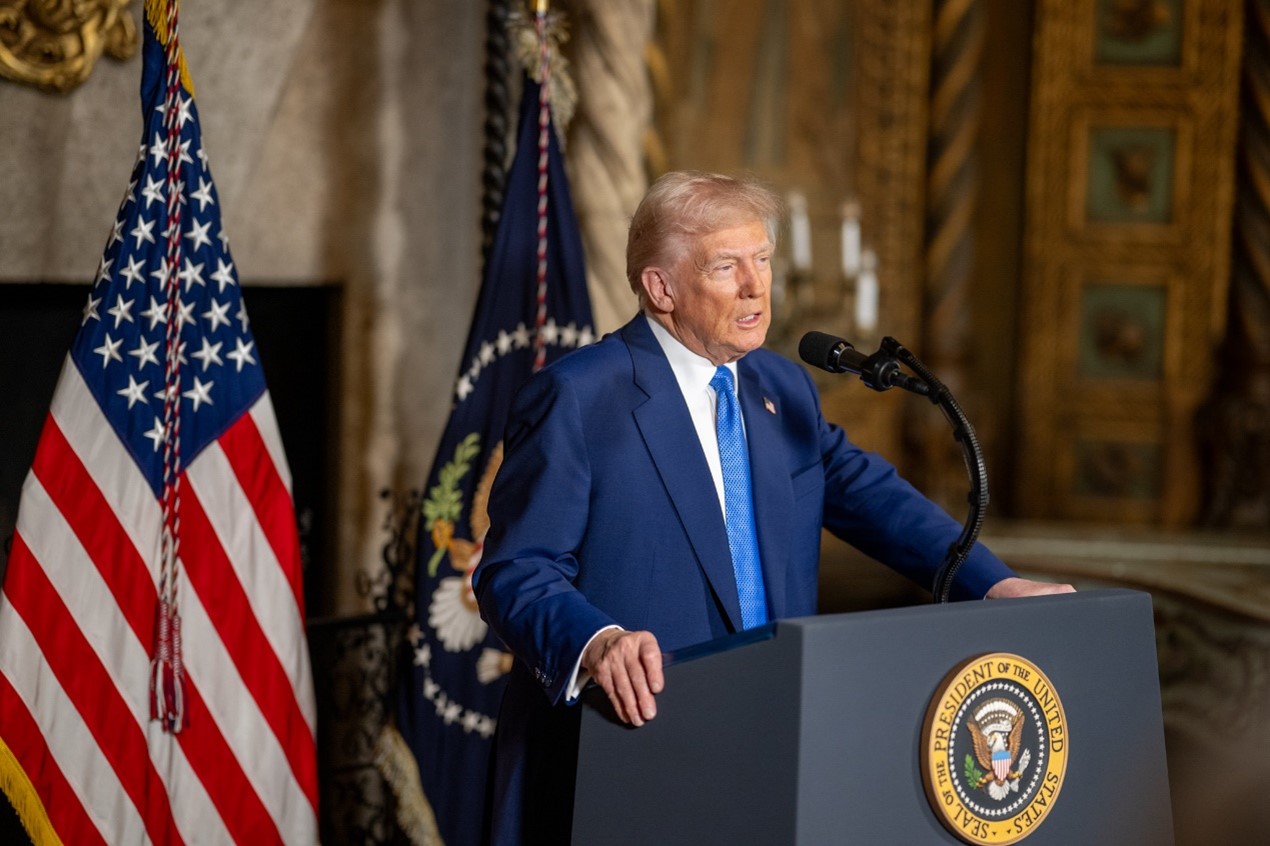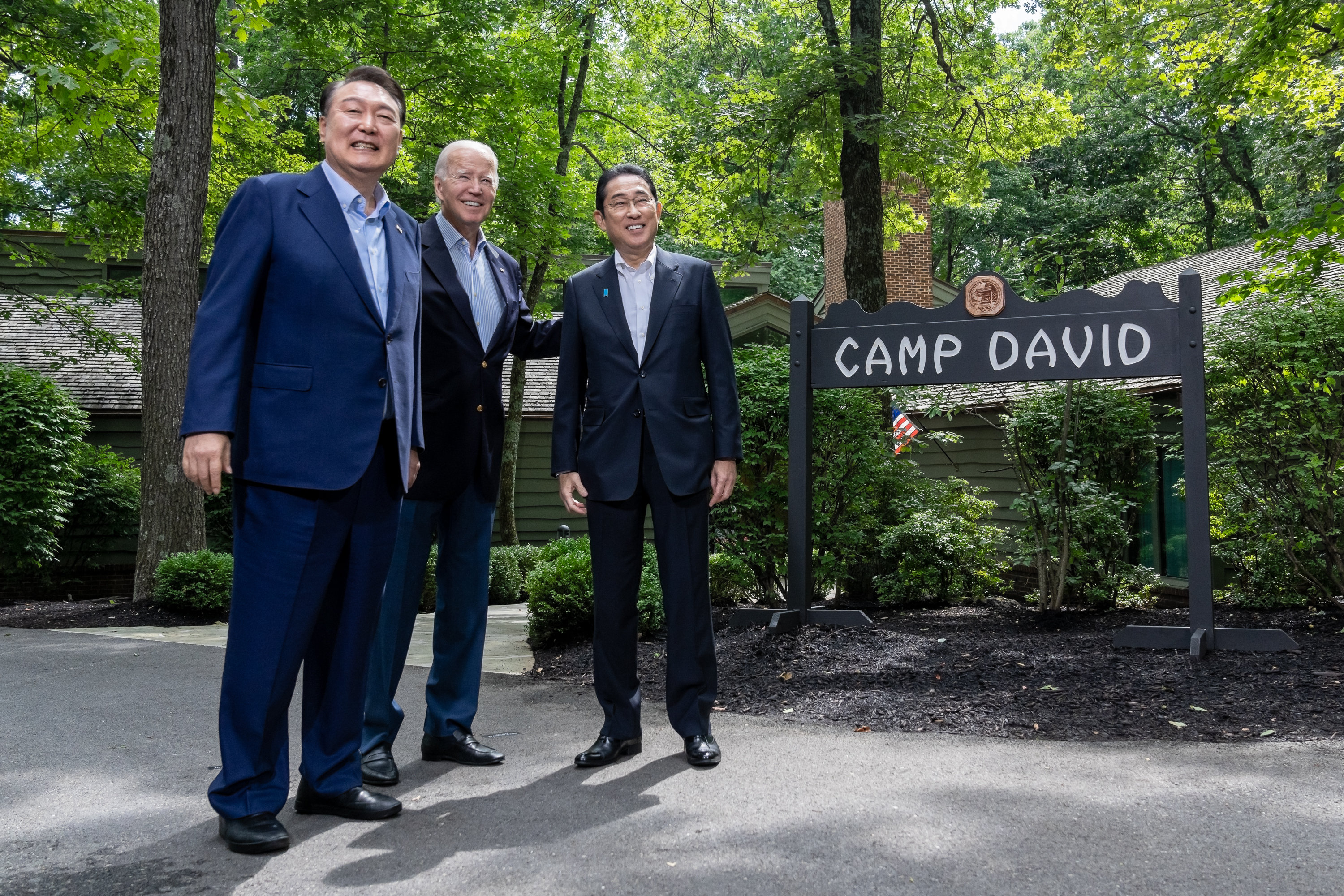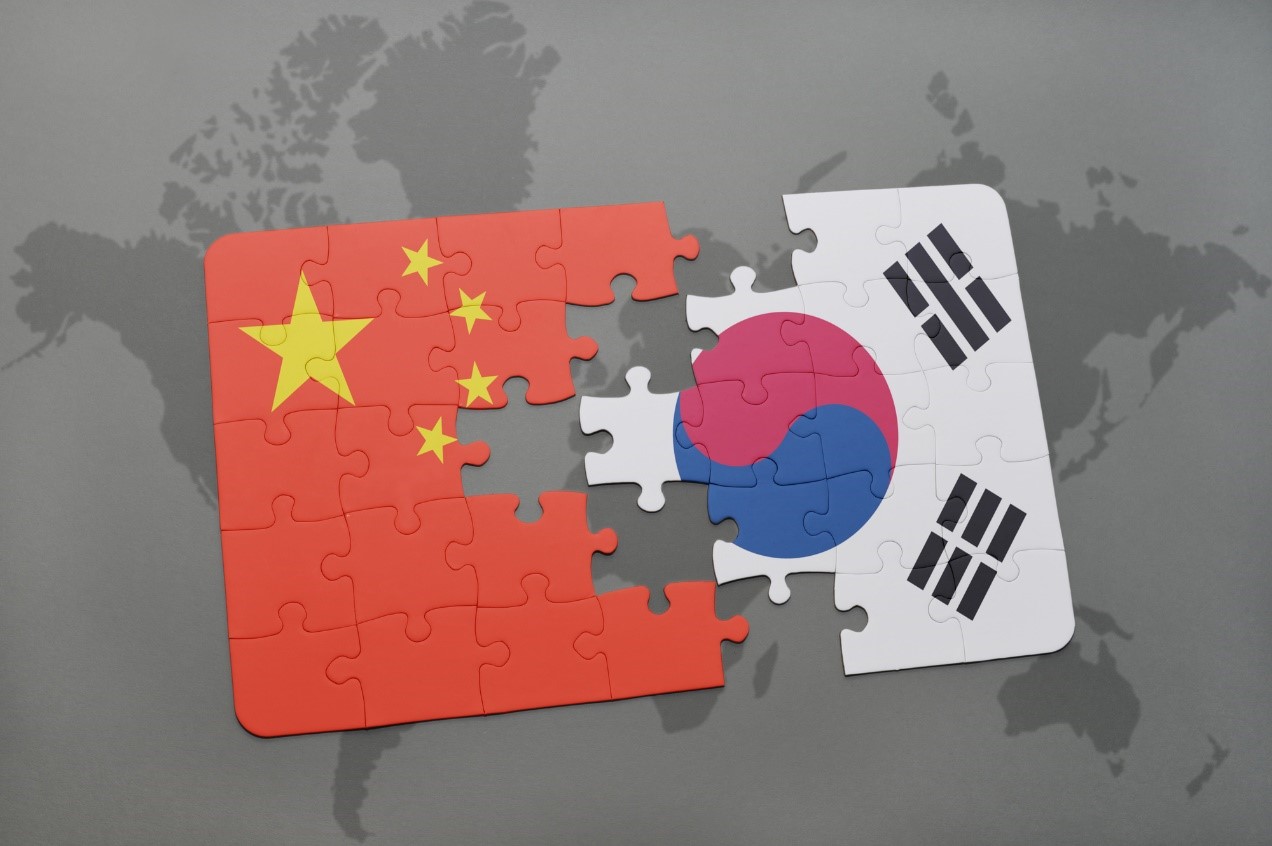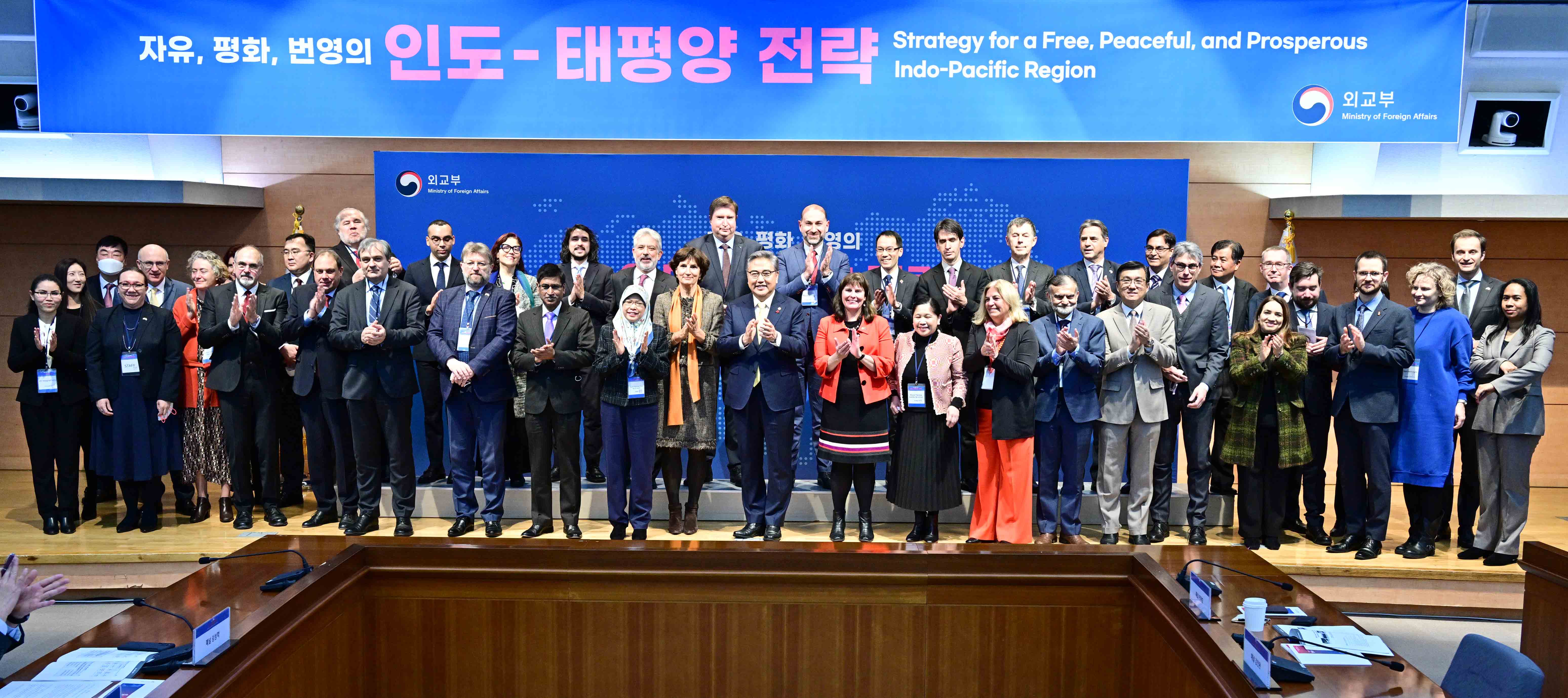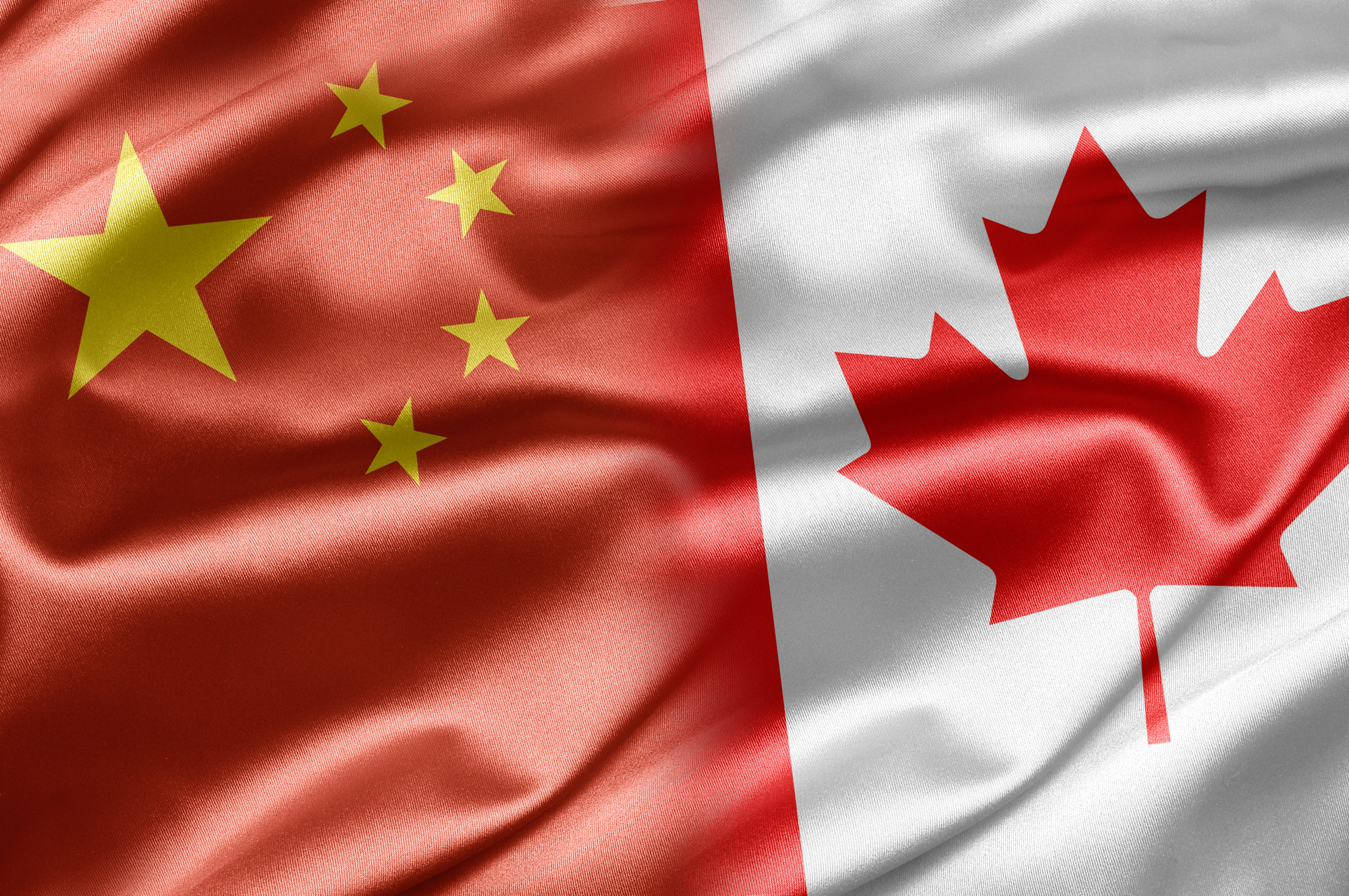Germany’s Political Shift Rightwards: Implications for Berlin’s Indo-Pacific Strategy
Germany’s shift to the political right under Friedrich Merz presents an opportunity for a more assertive and strategically coherent Indo-Pacific approach, especially toward China and Taiwan. Picture source: Friedrich Merz, March 8, 2025, X, https://x.com/_FriedrichMerz/status/1898389578534330589.
Prospects & Perspectives No. 16
Germany’s Political Shift Rightwards: Implications for Berlin’s Indo-Pacific Strategy
By David Demes
Germany finds itself at a crossroads amid profound global upheaval: Donald Trump’s return to the White House threatens traditional transatlantic unity, Russia’s aggression against Ukraine persists, and China’s rise increasingly tests Europe’s economic and strategic resilience. With the new governing coalition between Friedrich Merz’s Christian Democratic Union (CDU)/Christian Social Union (CSU) and the Social Democrats (SPD), Germany’s approach to China and Taiwan faces significant recalibration. The departure of the Greens and Free Democrats (FDP) — previously vocal critics of Beijing — combined with the SPD’s traditionally cautious stance toward China, creates uncertainty about Germany’s future Indo-Pacific posture. At this pivotal moment, Germany appears particularly vulnerable. Although the outgoing Bundestag recently approved a constitutional amendment permitting increased national debt for defense and infrastructure, Germany likely faces political inertia until a new government form in late April, complicating its response to an increasingly volatile international environment.
Setting a New Tone: The Legacy of Greens and Liberals
Under Foreign Minister Annalena Baerbock and Minister of Economic Affairs Robert Habeck (both Greens), Germany took unprecedented steps in openly criticizing China’s human rights abuses in Xinjiang, suppression of freedoms in Hong Kong, and escalating threats against democratic Taiwan. Similarly, the FDP promoted reducing Germany’s economic dependencies on China, diversifying trade, and forging strategic partnerships across the Indo-Pacific. Their historic achievements include Taiwan’s explicit inclusion in the coalition agreement and Education Minister Bettina Stark-Watzinger’s groundbreaking visit to Taipei — the first by a sitting German minister in over 25 years.
Yet Chancellor Olaf Scholz of the SPD often softened or blocked the initiatives of his junior partners, emphasizing economic stability and prioritizing relations with Beijing, especially to accommodate powerful industrial interests from big employers such as Volkswagen and BASF. Scholz’s controversial approval of China’s investment in critical infrastructure, including Hamburg’s harbor, and his opposition to stronger EU measures against Chinese market distortions revealed Germany’s policy ambivalence, undermining broader European efforts toward strategic autonomy.
The Influence of the Political Right
Although the far-right Alternative for Germany (AfD) remains outside the incoming coalition, its growing popularity cannot be ignored. The AfD regards China primarily as an essential economic partner, rejecting values-based diplomacy that might jeopardize commercial interests. This position aligns closely with authoritarian narratives emanating from Moscow and Beijing, advocating a foreign policy driven by economic pragmatism over democratic ideals. How Merz, his party, and his government will respond to increased pressure from the right while governing remains to be seen.
Economic Realities and the Imperative of Strategic Adjustments
Germany’s economic vulnerabilities toward China have become increasingly apparent, underscored by a staggering trade deficit of 66 billion euros in 2024. Analysts like Mikko Huotari from MERICS have characterized the situation as “China shock 2.0,” marked by intensified Chinese market distortions, excess industrial capacity, and diminishing market access for European businesses. CDU leader Merz explicitly warned German companies about the dangers of excessive reliance on China, clearly signaling a shift toward “de-risking,” though full economic decoupling remains improbable and undesirable among German stakeholders.
Still, Merz’s government appears committed to economic diversification and technological resilience, aligning closely with broader European priorities of reducing dependency in critical sectors like pharmaceuticals, rare earth minerals, and semiconductors. The new government will continue its support for the ongoing construction of a TSMC semiconductor factory in Dresden’s “Silicon Saxony” that exemplifies Germany’s strategic pivot toward fostering independent technological ecosystems less vulnerable to external disruptions.
Recalibrating Germany’s Indo-Pacific Approach
The incoming “grand-coalition” government of the CDU and SPD will likely sustain and potentially deepen support for Taiwan’s meaningful participation in international bodies and the Indo-Pacific region’s overall stability. Merz has already expressed a more confrontational stance towards China, calling out the growing authoritarian alliance between Beijing, Moscow, and Pyongyang. Historically, Merz has emphasized transatlantic unity and criticized authoritarian regimes, positioning himself as a staunch defender of democratic values. How this stance will change based on the Trump administration’s dismissive attitude towards its European partners, remains to be seen. After the clash between Trump and Zelenskyy in the Oval Office, Merz told the Frankfurter Allgemeine Zeitung that the “entire coordinate system in which our politics operates” was currently being rewritten. The rules of the game have changed. Accordingly, Merz has announced that his government will put forward a new national security strategy during his first year in office.
Voices advocating for a role for China in the peace process in Ukraine have not understood the degree to which Beijing has put its weight behind Putin. Stakeholders in Germany should avoid illusions of improved relations with China as a response to tensions with the United States. What is needed instead is a rigorous adherence to strategic autonomy and resilience. Merz’s proposal for the establishment of a National Security Council and revitalization of the Weimar Triangle — a trilateral consultation between Germany, France, and Poland — underscores a strategic shift towards a more unified European stance by the incoming government.
Navigating Coalition Dynamics and European Unity
The SPD’s influence, particularly in economically significant ministries, will likely moderate the CDU’s more assertive rhetoric. Despite internal differences, there is an emerging consensus within the new coalition on maintaining symbolic and diplomatic gestures, such as naval deployments and transits through the Taiwan Strait, initiated during SPD Minister Boris Pistorius’ tenure at the defense ministry. However, internal tensions within the coalition could significantly influence policy implementation, particularly in matters requiring decisive economic or military commitments.
From Beijing’s perspective, a CDU-SPD coalition is viewed as stable and pragmatic, and preferable to the previous government involving the Liberals and the Greens. This perception underscores a potential disconnect between Germany’s internal debates and external expectations, reinforcing the necessity of a coherent, united European response to China’s geopolitical assertiveness.
It remains essential for Germany to coordinate its China strategy closely with European partners and to develop a shared approach emphasizing fair competition, protection of critical infrastructure, and reducing strategic vulnerabilities. A continuing effort to enhance China competence within Germany — through educational networks, targeted business training, and specialized policy preparation — will be crucial to effectively managing this complex bilateral relationship. Recent reporting has highlighted that even in the new Bundestag, China expertise remains limited, particularly with the FDP now out of parliament after failing to pass the five percent threshold. Addressing this gap is vital for informed and effective policymaking.
In the meantime, security remains a pressing dimension in Sino-German relations. Increased Chinese support for Russia in Ukraine and heightened cyber espionage against German political and economic institutions underscore the necessity for robust cybersecurity measures. The outgoing German cabinet’s proposed legislation to protect critical infrastructure explicitly recognized security as integral to economic policy. It is imperative that the incoming government decisively and proactively tackles these challenges.
Conclusion
Germany’s shift to the political right under Friedrich Merz presents an opportunity for a more assertive and strategically coherent Indo-Pacific approach, especially toward China and Taiwan. Yet, economic pragmatism and the belief in the Chinese market driven by SPD interests and influential industrial lobbies complicate this recalibration. Ultimately, Germany’s ability to navigate internal coalition dynamics, reduce economic vulnerabilities, and strengthen strategic resilience will determine its role in promoting European unity, maintaining transatlantic relationships, and ensuring Indo-Pacific stability. The coming years will reveal whether Germany’s increasingly assertive rhetoric translates into cohesive, concrete policy actions, potentially redefining its influence within Europe and Europe’s broader geopolitical role.
(Davis Demes is German freelance journalist based in Taipei, Taiwan; Vice President, Taiwan Foreign Correspondents’ Club.)


